#SUCCESS IN POULTRY FARMING
Explore tagged Tumblr posts
Text
SUCCESS IN POULTRY FARMING: MITIGATING RISKS AND NECESSARY PRECAUTIONS Introduction
Poultry farming is a rewarding venture that requires careful planning, management, and implementation of effective strategies. Farmers must mitigate risks and take necessary precautions to ensure success in this industry. This article provides valuable insights and practical tips to help poultry farmers navigate potential challenges and maximize their chances of success.
Poultry farming is a thriving industry that offers significant opportunities for farmers to generate income. However, it is crucial to comprehend the elements contributing to success and put suitable precautions in place to reduce dangers. You can enhance your methods for producing chicken and raise your chances of receiving profitable outcomes by placing the information in this article to use.
Selecting the Right Poultry Breeds
Choosing the appropriate poultry breeds is crucial for the success of your farm. Consider factors such as breed characteristics, adaptability to local conditions, market demand, and disease resistance. Popular poultry breeds include broilers for meat production, layers for egg production, and dual-purpose breeds.
Creating a Suitable Housing Environment
Proper housing plays a vital role in ensuring the health and productivity of your poultry. Design and construct a well-ventilated, spacious, and secure housing facility that protects adequately from predators and extreme weather conditions. Ensure proper insulation, lighting, and waste management within the housing unit.
Implementing Biosecurity Measures
It would help if you practised biosecurity to stop pathogens from entering and spreading across your farm. Implement strict biosecurity protocols such as controlled access to the farm, disinfection measures, quarantine procedures for new birds, and regular veterinary check-ups. This will protect your flock’s health and assist in keeping the environment free of sickness.
Ensuring Proper Nutrition
Proper nutrition is vital for your poultry’s growth, health, and productivity. Develop a balanced diet plan that meets the nutritional requirements of different age groups and poultry breeds.
Provide access to clean water and quality feed rich in essential nutrients.
Disease Prevention and Management
Diseases can significantly impact poultry farms, leading to economic losses and reduced productivity. Implement preventive measures like vaccination programs, regular health checks, and appropriate sanitation practices. In case of disease outbreaks, consult a veterinarian to determine the best treatment options and preventive strategies.
Maintaining Optimal Hygiene
Maintaining high levels of hygiene is crucial in poultry farming. Regularly clean and disinfect the housing unit, equipment, and feeding areas. Proper waste management, including the timely removal of manure, helps minimize the risk of diseases and ensures a healthy environment for your poultry.
Monitoring and Record-Keeping
Effective monitoring and record-keeping enable you to track your farm’s performance and identify improvement areas. Keep records of feed consumption, egg production, growth rates, vaccination schedules, and other relevant data. This information will assist in making informed decisions and optimizing your farming practices.
Managing Ventilation and Temperature
Proper ventilation and temperature management are crucial for your poultry’s welfare. Ensure adequate air circulation in the housing unit to minimize humidity, ammonia buildup, and respiratory issues. Install appropriate ventilation systems and monitor temperature levels to maintain optimal bird conditions.
Addressing Water Quality and Availability
For your poultry to stay healthy and hydrated, they must have access to clean, enough water. Regularly test the quality of water sources and always provide clean water.
Implement measures to prevent water contamination and ensure water availability throughout the day.
Effective Waste Management
Implementing efficient waste management practices is essential for maintaining a clean and disease-free farm. Develop a waste management plan that includes proper disposal of manure, regular cleaning of the housing unit, and recycling options if available. By doing this, you can stop the spread of diseases and lessen environmental degradation.
For More Details Click Here
0 notes
Text
From Setbacks to Success: How to Reset and Revive Your Poultry Farm in 7 Strategic Steps
“Revive your poultry farm with our 7-step guide! Learn to navigate challenges, boost profits, and create a sustainable future. Read now!” Starting a poultry project is a bold and rewarding endeavor, filled with the promise of financial independence, sustainable food production, and a meaningful contribution to your community. However, even with meticulous planning,…
#Agricultural Innovation#biosecurity measures#farm recovery#farm resilience#overcome setbacks#poultry business#poultry challenges#poultry farm success#poultry farming#poultry marketing#poultry production#poultry project#profitable poultry#re-strategize farming#sustainable farming
0 notes
Text
Poultry farming Business कैसे सुरु करे/ पोल्ट्री फार्मिंग ( मुर्गी पालन) की पूरी जानकारी
क्या आप जानते हैं, भारत में Poultry Farming Business model है जो हर साल 90,000 करोड़ रुपये से भी ज्यादा का टर्न ओवर देता है? देश में लाखों लोग इस बिज़नेस से अपना मुनाफा बना रहे हैं, और ये सिर्फ बड़े बिज़नेस मैन के लिए नहीं, बल्कि छोटे किसानों के लिए भी एक सुनहरा अवसर है�� यह एक ऐसा क्षेत्र है जहां थोड़े निवेश से भी बड़ा मुनाफा कमाया जा सकता है। लेकिन कैसे? आइए, जानते है इस बिज़नेस की गहराई में…
#Poultry Farming Cost and Revenue ka detail Analysis#Poultry Farming ka Advantages OR Disadvantages ke Detail jankari#Poultry Farming kise kahte hai#Poultry Farming me Lagne wale Diseases Or Uska Solution#Poultry Farming का Market Potential और Profitability#Poultry Farming कितने प्रकार के होते हैं#Poultry farming शुरू करने के लिए क्या आवश्यकताएं होती है#पोल्ट्री फार्मिंग में मार्केटिंग और बिक्री रणनीतियाँ (Marketing and Sales Strategies in Poultry Farming)#पोल्ट्री फार्मिंग में लागत का अनुमान और निवेश की योजना (Estimating Costs and Planning Investment in Poultry Farming)#पोल्ट्री फार्मिंग में लॉन्ग-टर्म सफलता के टिप्स (Tips for Long-Term Success in Poultry Farming)#पोल्ट्री फार्मिंग में संभावित लाभ और जोखिम (Potential Profits and Risks in Poultry Farming)#पोल्ट्री फार्मिंग में स्वच्छता और स्वास्थ्य प्रबंधन (Sanitation and Health Management in Poultry Farming)
0 notes
Text

"...Hello? Ma! I told you not to call me today, I'm making a movie!" -Wario, Mario Power Tennis
The most important lesson from Ma that Wario took to heart was the endless pursuit of cold, hard cash. Unfortunately, the one lesson she could never teach him was the importance of hard work to get it. It wasn't for lack of trying; Wario's Ma is the hardest worker this side of the Mushroom Kingdom. Raising Baby Wario was a herculean enough task on its own, but ever the enterprising spirit, she had also set out to grow one of the most profitable crops: garlic.
Her backyard business quickly expanded into a veritable garlic empire. Wario's mother toiled away tirelessly each day from sunrise to sunset to grow and harvest as much garlic as she could possibly achieve. Much of Wario's current strength and endurance can be attributed to helping his mom on the farm as a child, although the teeth-pulling task of getting him to actually work was almost as difficult as preventing him from eating all the garlic straight out of the ground. Wario's nose for instant gratification has always been a thorn in his mother's side, but try as she might to instill a solid work ethic into the boy, her "get-rich-slow" schemes could never appeal to him. Still, Wario enjoyed his surprisingly agrarian upbringing. Along with garlic, his mother also raised chickens for eggs, inspiring in Wario a lifelong soft spot for poultry. (He also had a pet hamster named Fluffy, who sadly passed away in 1986.)
Today, Wario is still on good terms with his mother despite their physical distance, and frequent phone calls keep her updated on all of Wario's business successes. Of course, being Wario, he heavily embellishes the amount of work he actually does at his company. If she only knew...
#wario#mario oc#(technically...?)#something I couldn't gracefully fit into my spiel is that she is also where he gets his affinity for country music from.#also my timeline here is that wario spent his early childhood on this farm in the mushroom kingdom (where he met mario) and moved to#diamond city as a teen (where he met jimmy t‚ was taught how to drive by dribble and spitz‚ etc)#idk why they move though i havent figured that out yet. But they go back to the mushroom kingdom area at some point#wario‚ now all grown up‚ kicks off all his sml and wario land shenaniganery after several failed attempts to yoink mario's castle#and later goes back to diamond city while wario's mom continues to thrive on her garlic empire#and thus warioware is born. You know the rest#art#moms n dads#wario's mother
630 notes
·
View notes
Text
spiel about doing specialty livestock projects in the time of “I will probably never see a USDA grant in my lifetime”

I love baby season, obviously. It’s exciting and fun, but it’s also stressful and and harrowing, especially when it comes to the turkeys.
Turkey poults have awful survival rates. I don’t think there’s any domestic poultry with as bad of a hatchling survival rate as turkeys. They struggle to learn how to eat and drink - you need other birds to show them, or to put shiny things in their food and water, or to syringe feed them manually till they figure it out. Sometimes you can do all those things and it still won’t be enough. Their immune systems are much more delicate than other birds, too.
I should be hatching out some really rare varieties this year - “we don’t have a documented, identified, searchable photo of this variety” rare (which is nuts, because I’m a guy doing this in my leased backyard with two dollars and my fingers crossed). But first we have to get my turkeys laying enough eggs (they keep going broody on empty nests…), collect the eggs before predators/scavengers get them, successfully incubate the eggs, and successfully raise the chicks (and then make sure the adults survive). It’s an Olympic level challenge to get from point A to point B here. A better brooder, a better incubator, an ICU incubator, better fencing, and more secure land would all make a world of difference here - but I will never make money off these birds (I probably won’t ever break even!), and there already wasn’t many options for support and funding of small farm projects as niche as rare heritage turkey varieties, and now there may be no federal farm funding in my lifetime. Even the Livestock Conservancy - an organization that is deeply important and that I respect a lot! - doesn’t recognize the birds that I’m breeding and conserving!
I’ve talked to people about grants, about land succession, about all sorts of things in hopes of better resources and access, but at the end of the day, I chose something so rare and niche that no one really knows about it or cares to support it. I’m still going to do it, because it’s important to me. I love these birds. I want to preserve them, make them more accessible, and encourage choosing animals with better welfare over industry standard “meat birds.” And even though I cry over turkeys a lot, and I didn’t sleep well last night because my current ICU poult kept screaming and waking me up, and my finances are going to be in the toilet forever because I decided to do this instead of, like, tech or trade school, I love it.
Turkeys are awesome. Every uncharismatic animal, every bug, every plant, every biological system or process has someone or some people who love it and see the value in it even when no one else does. You might not give a leech or a bug smaller than a grain of rice or a pest species more than a passing thought, but maybe you should take a second to appreciate what someone out there does about those things. Everything on this planet is so special. I hope every species always has at least a tiny handful of people studying, protecting, and defending it, even if the human made systems fully reject those passions as useless.
22 notes
·
View notes
Text
Chicken Run 2 things I did really like:
It's a fun and small nod to irl chicken farming, but I like that the pen the chickens are kept in in Funtime Farms is an indoor pen. That's how modern poultry gets by on the "free range" excuse.
Genuinely appreciate how much and how well this movie states Ginger's awesomeness through Rocky or other people. It's not too distracting and it's earned. She is the iron chicken and it's a good way to hype up the character without telling you rather than showing you. God. I love Ginger.
Nick and Fetcher needed more scenes with Molly because them being attached and joining in just to save their "niece" is adorable and a great expanse on their characters. Good.
Rocky was a great dad and way better written than the original but still very much Rocky. That's how you do a 'wrote a potentially problematic love interest 20 years ago now here's them updated for modern ''wokeness' standards,' PIXAR. I liked him being both a hinderence and an accessory to Ginger. Shows why and what I like about them as a couple. I especially like how, without even showing you, that Rocky was the one to tell Molly what she needed to know but did not expand on just how traumatized Ginger really is from her ordeal. That's both in character and a believable thing a parent would do when their kid is simply prodding about their past, rather than directly asking their parent. Also, given it's Rocky and he already didn't have a perfect sitch going on as a circus animal, he probably didn't hype it up as perfect but more or less leaned into how adventurous he and Ginger were.
Ginger and Molly and their whole plot of not understanding each other was fine. Ginger being an overprotective parent who never wants to leave the island now and is enforcing her flock never to leave works better here than in contrived direct to video movies like Lion King 2 or Little Mermaid 2. The annoying thing about these kinds of stories is, simply put, the audience is screaming at the parent to just better communicate with their kids, especially when it's not like Ginger is too haunted to talk about the farm to other characters. What was needed, I think, was real establishment that Molly knows her mom escaped from a farm but doesn't truly know what a farm is and what would happen to her on one. Maybe also have it clear that Ginger is so set on being a "free chicken" she refuses to even talk about her past with Molly- somehow thinking that her old life before was beneath what she is now, even though she was the one who escaped from it and was always worth the lifestyle she deserves. Would be a great call forward to Ginger's slight (understandable) apathy for chickens outside her flock that would come full circle to her being the character she always is and is best at. Over all I liked her, Rocky and Molly a lot. I just wished I could have heard Julia Sawahla instead.
Pacing actually moved decently for once for a modern animated kids film. That's impressive, especially for a sequel.
Mrs. Tweedy saying she "gave Ginger everything a hen could ask for" was really illuminating for her character. Really, much as I wish this wasn't the same character, I love Mrs. Tweedy wanting revenge on Ginger. On a chicken. Her dialogue revealing that she thought the life she gave the chickens on her old farm was "good" for them tells you so much about her and how she sees herself as a good farmer only if she's a successful farmer.
Haha the ending shot is perfect.
Okay one thing about this movie- this may be actually be a bad thing depending on your diet choices -this movie makes me actually really hungry for chicken and chicken nuggets. This whole franchise isn't inherently vegetarian or trying to be anti meat, granted, but that is the take away from the character's perspective given that they are the chickens. To put this a different way: the first movie makes eating chicken really unappetizing from the beginning with the "roll call" scene and the pies the chickens would potentially turn into, over the top as it is, also unpleasant. You definitely don't get anything close to the "roll call" scene in this film. A chicken does die but it's all so offscreen it has no impact, so when she's cartoonishly instantly turned into nuggets that Mrs. Tweedy eats, you don't feel anything...you kind of wanna eat the nuggets. Apologies to any chickens reading that. Here, have some happy chickens to counteract the pain:
youtube
162 notes
·
View notes
Text
📌 Why Your Dreams Are Stagnant While Others Are Achieving Theirs
Have you ever felt stuck while your friends seem to be progressing? The reason is simple: they know something you don’t.
We all have dreams—wealth, success, fame. But dreams without goals are just fantasies.
Many people stay stagnant because they never turn their dreams into SMART goals (Specific, Measurable, Achievable, Relevant, Time-bound).
🚀 Example: If you want to start a poultry farm, don’t just dream about it. Make it a goal! Save 50% of your salary each month to build capital by 2027.
📖 A Biblical Lesson:
Even Joseph had a dream of greatness, but he didn’t just sit and wait. God used trials to prepare him for leadership. He had to work towards his destiny.
✨ The Takeaway:
Your dreams will remain stagnant unless you take action! What dream are you ready to turn into a goal? Tell me in the comments!
🔗 Reblog if this inspired you!
2 notes
·
View notes
Text
Here are 10 things you should know about Irene Rich, born 133 years ago today. She enjoyed success in vaudeville, on Broadway, in pictures, radio and … poultry farming.
#Irene Rich#old movies#silent movies#classic film#classic movies#classic Hollywood#Golden Age of Hollywood#vaudeville#classic Broadway#OTR#old time radio#precode#precode movies#pre-code#pre-code movies
4 notes
·
View notes
Text







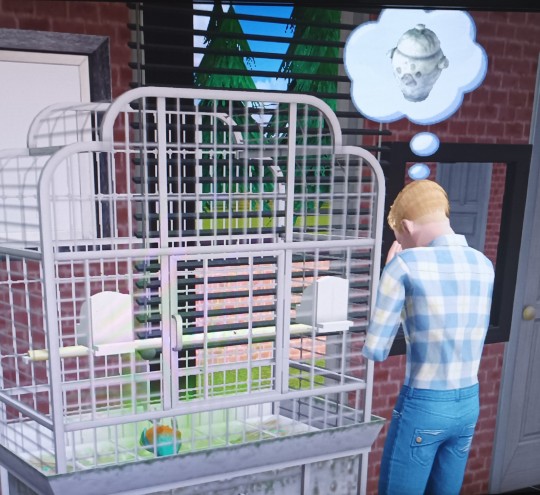
Wanda is one of 4 siblings who inherited a horse ranch, but they ultimately decided that her older brother Wilhelm should take the reigns. He has a wife, called Lizelle and they have a sweet little toddler called William. Lizelle loves the ranch and enjoys spending time with the horses, since her parents and brother specialise in tomato farming and didn't keep that many farm animals when she grew up.
Her blond haired older brother is about to get married to Bev Fox who runs a pet store with her two brothers. Charles decided to move away from horse ranching and try his hand at poultry instead. He is excited about this new venture and hopes that Bev will help him on their new farm. She does still hold on to her dream of becoming a marine biologist one day.
Wanda's younger sister married one of the Fox brothers who run the pet store ( 😁yes Bev who will marry Charles is their sister). Wilma and Monteque Fox is expecting their first baby and while they are a bit preoccupied right now, Monteque's brother, Lewis takes over the majority of the pet sales and care. Lewis is actually a rather talented veterinarian, so he is mostly successful - except for the one red parrot who randomly died😔...
So that is the Allermann and Swarts families of Bluewaterview. I will share some background on some of the other residents too... Just to show what I have been up to.
4 notes
·
View notes
Text
May 2024 Casual Prompt Fill
Didn't think I was going to have anything for the prompts this month over at @love-bokumono-fics, nothing really struck a note of inspiration this month. But I was looking at the choices again tonight and suddenly had an idea. So I spent 30 minutes putting this down on paper.
It's an alternate prompt, using Livestock rather than the winning choice of Rarepairs. I've been itching over the last couple days to start up a new file on a farm sim just to have the fun experience of starting anew. I might have to boot up another FoMT file tomorrow, because writing this fic did not scratch that itch entirely lol
You can read the fic on AO3, but since it's pretty short, the whole thing is here too. Enjoy!
A New Friend
Pete had been waiting for this day all his life. Or it felt like it. Really just in the last couple weeks had the idle daydream had a chance of becoming reality.
Today he was going to buy a chicken!
Most people wouldn’t see such an occasion as something so monumental, but for a fledgling farmer it was a significant milestone. Ever since moving onto the farm, he’s scrimped and saved every spare penny into an old pickle jar which he’d labeled confidently as his “Livestock Fund.” And he had just enough saved up for a chicken and some feed.
He’d put blood, sweat, and tears into repairing the ramshackle chicken coop on the property, sealing up the walls to keep his future hens safe and snug, salvaging and repairing the nesting boxes and feed silo, he’s even built a fenced in little yard for them to scratch around in and enjoy the fresh air and sunshine on nice days.
Rick had been by yesterday to inspect Pete’s work on the coop, and it had passed his inspection. So as soon as the Poultry Shop opened, Pete was going to walk in and ask Lilia for their finest hen.
Pete looked around his farm, still rather raggedy looking, clearing out all of the weeds and debris after so many neglected years was a harder job than he anticipated, but he could see its potential so clearly in his mind’s eye. Acres of lush crops, wide pastures with a variety of livestock happily grazing, the contended cluck of chickens scratching for bugs to eat.
A farm just wasn’t a farm without animals.
Sure Pete had his dog, the happy little puppy he’d adopted when he moved in was going to grow to be a fine farm dog. But he needed more than a pet companion. If his farm was going to be successful, he needed livestock. Cows and sheep seemed pretty complicated for a brand new farmer, but a chicken seemed to be perfectly on his level. He’d read every book on chickens the library had. He was so ready for this!
The morning seemed to crawl by as Pete did his chores, watering the plots of crops he had planted, clearing out the few weeds that were stubbornly trying to grow back in the tilled soil, picking what forage he could from the mountain. Every penny mattered, and while he knew the chicken was going to help him make more money, he also knew he was taking on another mouth to feed.
Finally the time came for the store to open and Pete hurried, though he tried not to run, to the neighboring farm. Brimming with excitement, he strode through the doors, slammed his money on the counter and proclaimed, “Lillia, your finest hen please!”
The shopkeeper laughed kindly at the display and pulled a small cage out from behind the counter. “Popuri picked her out just for you. She said the two of you would be a perfect match.”
Pete beamed at the bird, she was beautiful. Snowy white feathers, little red face, bright black eyes, yellow beak and feet. She seemed mildly disgruntled, ruffling her feathers at the cage and glaring suspiciously at Pete. When he peered closer she shook herself and made a few low, disapproving clucks.
“She’s perfect! Has she got a name?”
“You have the honor of naming her. She’s just gotten old enough to begin laying, but it might take her a few days to settle in. Once she’s happy and comfortable in her new home she should be a wonderful addition to your farm. Her mother is a prodigious layer, so you’ll have plenty of eggs to sell and eat soon enough.”
“Then I’ll have to think up a good name for her. Something that suits her.”
Still smiling, Lillia began counting Pete’s money. “Take your time and let her personality come out. She’s just been called ‘hey chicken’ while she’s been with us. We usually wait til they’re grown before naming them. Saves us from having a chicken named Sweetpea with the personality of an angry demon. Now you’ll be wanting some feed too? I’ll send Rick over with it later.” She closed the till and wrote out a receipt for Pete and a small pouch of feed. “Now you take your new friend home and get her settled, having a snack will help her feel at home in the new coop. And don’t forget, if you have any questions or concerns, we’re here for all your poultry needs!”
With a cheerful wave, she sent Pete out the door. As he walked, he held the cage close to his chest, looking down at his new chicken more than the road in front of him. She continued clucking softly, as if commenting on the scenery or conversing with Pete all the way back.
“You are chatty,” Pete laughed as he stepped onto his farm. “Maybe Cathy? Hmm… no. Well, we’re here. Take a look around at your new home.” And he held the cage out for the chicken to see. “I know it doesn’t look like much, but I have plans for it, and you’re going to help me make them come true.”
He carried the chicken to the coop and opened the cage for her. He waited excitedly for her to step out on her own and begin looking around. She was slow and hesitant at first, taking cautious steps around the coop, she flinched every time Pete moved, fluttering away with an alarmed squawk, but she became braver when he tipped some of the feed out for her to eat. When she ate what he’d given her she looked at him expectantly. With a laugh, he tipped some of the feed into his palm.
The hen didn’t waste much time approaching him and inspecting the food in his hand, and when she decided he was safe she happily ate.
When she had finished her snack, Pete opened the door which led to the fenced in enclosure he’d built. She was quite happy to have the sunshine and fresh air available to her and moved quickly into the yard. Pete watched her inspect every corner and scratch around, and when he was content that she couldn’t break through the fence, he let her be and returned to his work.
He worked in the fields closest to the coop, so he could keep half an eye on his new chicken while he cleared out more debris. His dog came over to investigate the new addition and Pete had a very serious talk with the puppy that the chicken here was a friend, not food. It was his dog’s job to protect their friends, not scare them. And the puppy seemed to understand, or perhaps he just had gained a healthy respect for the chicken already. She had squawked and pecked at his nose when he came sniffing around her fence.
All the while Pete worked the chicken chattered. Maybe she just missed the noise of the other chickens at the poultry farm, or maybe she just liked hearing herself talk. Pete entertained himself with the idea that the chicken was commenting on his work, complimenting his technique with the scythe, criticizing him for not giving her the worms he uncovered when he moved a rock. Once, he was certain she actually laughed at him when he’d misjudged how robust an old stump was and ended up getting his axe stuck in the wood. He’d managed to get it unstuck with no small amount of effort, and all the while he struggled the chicken clucked and clucked.
“You never stop talking, do you?” Pete panted, sitting on the ground next to the fence and wiping sweat from his brow. “Got a lot to say. Like my very own peanut gallery. Hey!” He perked up. “That’s a good name for you, Peanut. What do you think? Cluck once for yes and twice for no.”
The chicken stared at him for a moment, her eyes narrowed in thought. Then she jerked her head in what almost looked like a nod and clucked once.
“Peanut is it.” He reached through the fence and brushed a couple fingers over Peanut’s feathered head. “Welcome to the farm, Peanut old girl. You and me are going to be good friends. I can tell.”
Peanut pecked at his fingers in annoyance, and stalked out of reach ruffling her feathers.
Pete chuckled and flopped back into the grass. “Start of a beautiful friendship.”
4 notes
·
View notes
Text
Hawthorne Poultry: The Specialties
Welcome to part four aka part two of part three of the poultry headcanon! Once again, thank you to the lovely @hathorneheiress for sharing her expertise on chickens in her posts of this headcanon series and her contributions to this collaboration. It's been lovely working with you and tossing ideas back and forth.
Nash: Given that he's a bit of an old fashioned guy, this man really just opted for turkeys. He used to raise Bourbon Red but then turned his efforts to the Royal Palm breed. Some are still around in a small flock, his old show birds, but it was getting to the point the workload was too much and he didn't want to be in that anymore. However, because he is still most comfortable with chickens, he has been experimenting with raising the ancestral species they come from; the Red Junglefowl. Nash wanted to give them more of the natural habitat they'd be used to so he set up an area of the greenhouse where they could in a humid environment with plants and food that they would normally encounter. So far, they have been doing well and he's been a successful breeder with every generation further along. One time, when he was ten, in a rare, once-in-a-lifetime moment in the documented history of the Hawthorne family did the old man and him have a genuine bonding time when his grandfather planned a surprise for Nan and Zara by unveiling a new section in the garden from his annual additions to the estate with a gorgeous pond with aquatic plants and light up fountains. He wanted to add some nice birds and to help with that, Nash suggested swans and so Tobias bought a pair of Mute Swans. Zara and Nan were delighted. The swans regularly have cygnets that can be seen on the property roaming during spring and summer. In recent times, now that Nash got engaged to Libby, he wanted to get something special for her and Avery told him that she loves birds, peacocks being near and dear to her. So, some new additions to the estate include Green Peafowl, Spalding (Indian x Green Peafowl), and Congo Peafowl. With their beautiful plumage, they're quite the sight to see when strolling in the gardens and are great companions when one has ice cream in hand. Libby loves them and Nash got her peachicks to raise herself as well.
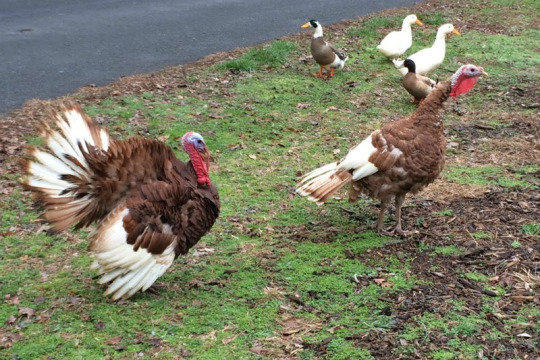
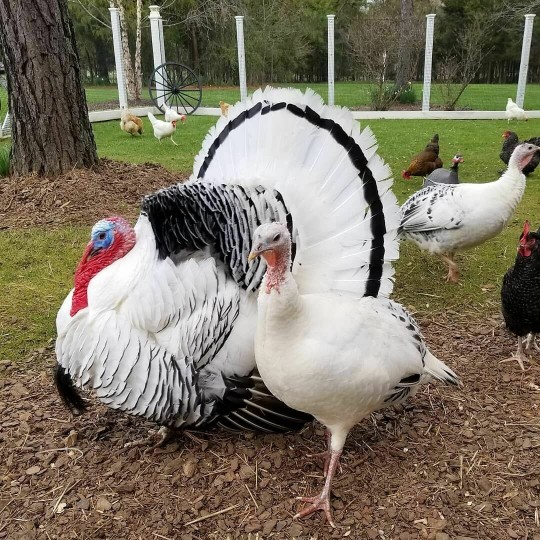
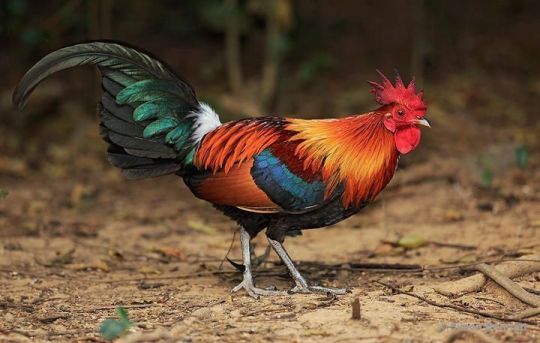

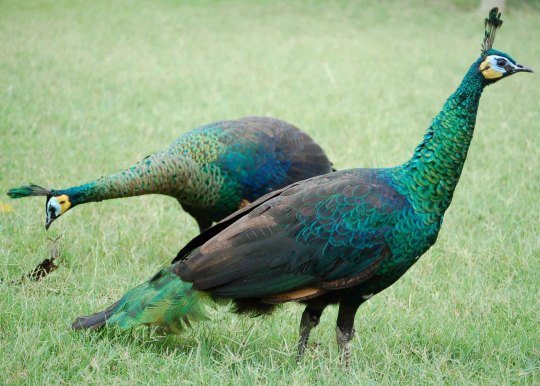
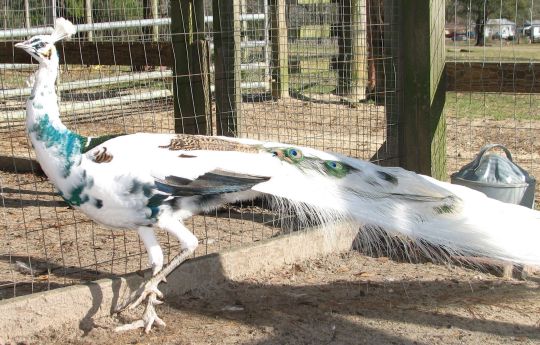
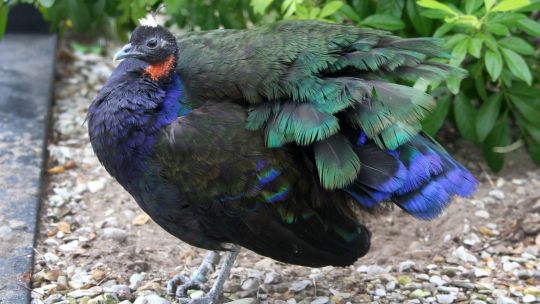

Grayson: He prefers pheasants and raises three species; the Ring-Necked, Golden, and Lady Amhurst's. That is, until he fell in love with Silver Pheasants which are just as majestic. Gray always loved their colorful feathers as a child, collecting them and making feather crowns. He'd run around and play King of the Forest with Jameson and Xander sometimes. The Lady Amhurst's Pheasant is his favorite and at times, when he needed a distraction or a time out from everything, he would take one of the birds and just pet them. Somehow, he never had strugglers, they always liked sitting on his lap and would peck at him if he stopped petting them so of course he would have to start again.
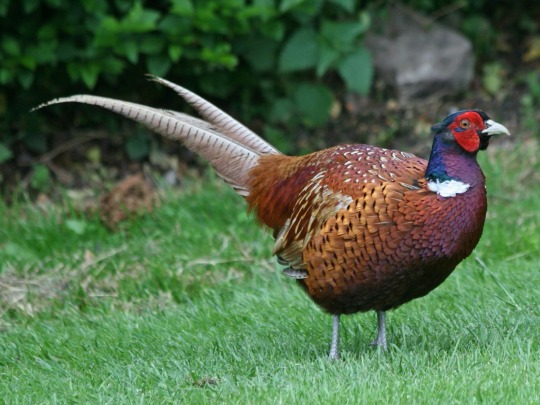
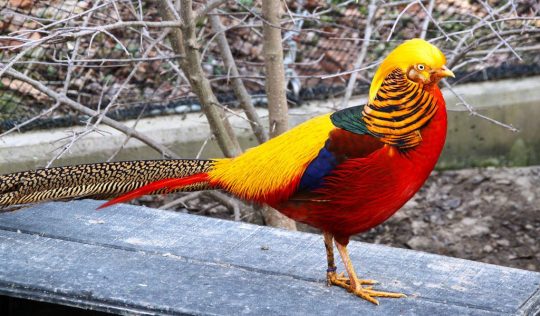
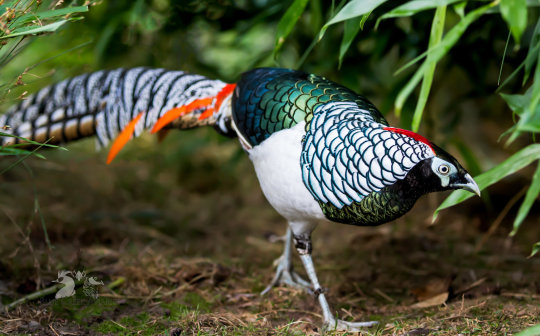
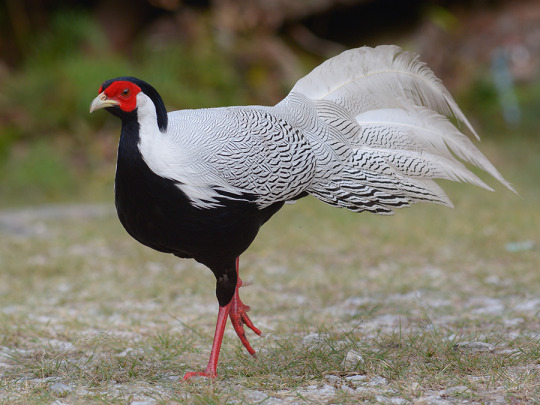
Jameson: His biggest investment and love of birds lies with ducks. His grandfather got him his first set of Indian Runners when he was a kid and the ducklings loved following him around. Eventually, his collection of ducks grew when Nash found an old Muscovy female with a bad leg abandoned at a rundown poultry farm. Strangely enough since Xander was the one who usually connected with the rescues most, it was rather odd when it was Jameson instead that became attached to the duck. She loved him too and would happily vocalize whenever she heard his voice or saw him coming. He named her Martha but he likes to call her Smarties or Marty. Dramatic Xan likes calling her Martine in a ridiculous French accent or Martini. After that, their grandfather got a few additional ones to stay on the property. To this day, she’s still around with the Muscovy Bunch as the brothers call them and Avery loves her, too. Jameson also shares a Chinese goose pair with his younger brother that are the first attempt at Hawthorne guard geese. He owns the male that he named Boris and though the male goose didn’t respond to his mate at first because he was a bit shy, he soon became really protective of her and their goslings. One of Jameson’s newer projects, inspired by Nash, is owning Ocellated Turkeys, very brightly colored birds. He and Avery are teaming up to explore this uncommon choice of poultry for raising alternatives to see if there are any advantages and unexplored benefits compared to the industry's current standards. It is one of their newest exploits in the agriculture expanse of research they're funding under Avery. He also personally owns a few emus as pets. When he was a toddler, one of his favorite shows was Elmo's World so when he got his first and his aunt tried to get him to say emu, he said Elmo instead. Elmo is his oldest male in the flock and still running the joint. Also, he loves Australia and so after one visit there, he wanted a part of it to always be with him because he couldn't live there since everybody forbade him (he and Max are basically besties because they have no self preservation since who the heck wants to live in one of the SCARIEST places on Earth where there are literally some of most venomous species of spiders and snakes, the largest crocs, and sharks???????????????; they probably went on vacay together at one point and Avery and Xander were praying for them every other moment they were there). He also hates ostriches with a passion. Probably from that one time where he got chased as a kid and one singled him out constantly.
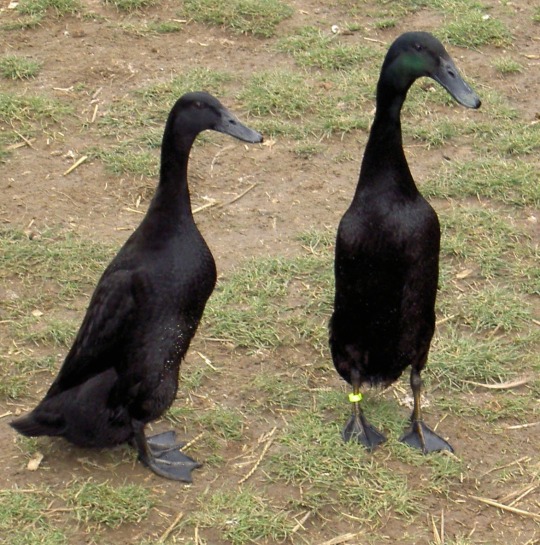
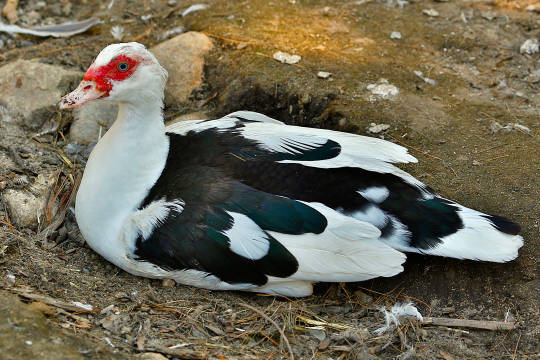
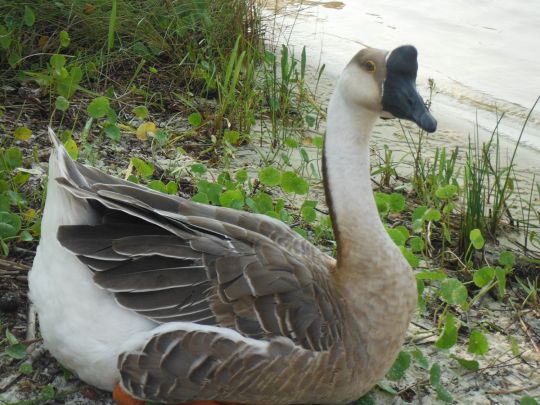
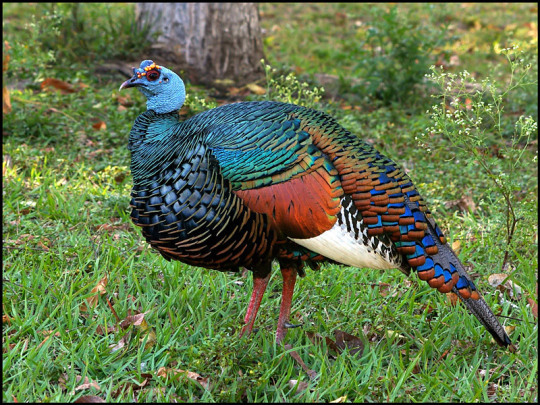
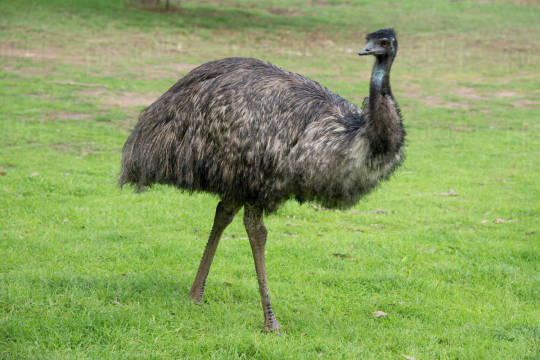
Xander: He has the best of them all; an ostrich! There's one female that he accidentally imprinted on when she was hatching and of course, he was given the very hard task of being a single father at the very young, unfortunate age of five. Day one, he came back to his room sweating and fell asleep on the floor with a very happy ostrich chick running around him. It was a great day in memories for the photo albums. Xan named her Shea Butter because, of course, five-year-olds think everything is a great name. She is now a third time parent but even though she is still a part of the bigger flock belonging to his grandfather, Shea is considered a pet. She acts like a very big dog that sometimes has to be reprimanded (the Cowpalooza of 2010 is a testament to that but more on that later). Xander decided that one ostrich is already enough work but enjoys their smaller distant cousins known as rheas. He has a trio and yes, they all are named after Pokémon counterparts (it wasn't just a phase, he said, and still stands by them); Dodrio, Doduo, and Staraptor (that last one is debatable). Two are females and one is a male. They are also pets but Xander does love a good rhea egg salad (surprising, I know) occasionally. As said before, he and Jameson share a goose pair and he has ownership of the female who he calls Honkette (not his best naming according to Jamie). She is the fiercer of the two and scares away anything and anyone (even Xander at times if she accidentally mistakes him for another; he cries in his room after these great betrayals). The only person she does trust around the babies is Xan, though. Now, Xander is the pigeon expert in the family and the only one that tolerates the cooing buggers (Nash and Jameson both have... grudges to say the least; that trip to Venice was not a good one). Grayson is the only one that has expressed interest in breeding them and he loves the ones with feathered legs (Xander is surprised it took him so long but it finally happened). He breeds Indian Fantails-they were his introductory birds to fancy pigeon breeding-Oriental and Parlor Rollers, and his absolute favorite; Homing Pigeons! He mostly got into these guys because he loves the history surrounding them: espionage, mail and wartime message carriers, and their cool ability of being able to find home with a magnetic component in their beaks that gives them this capability. He has been trying to use them here and there to spy on his brothers from the outside; his brothers sometimes have said they felt eyes on them from somewhere outside and a curious cooing of a pigeon.
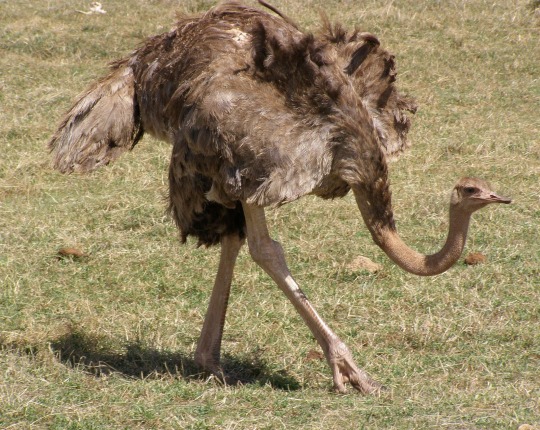
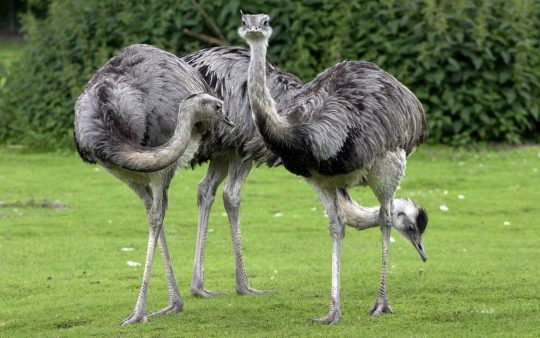
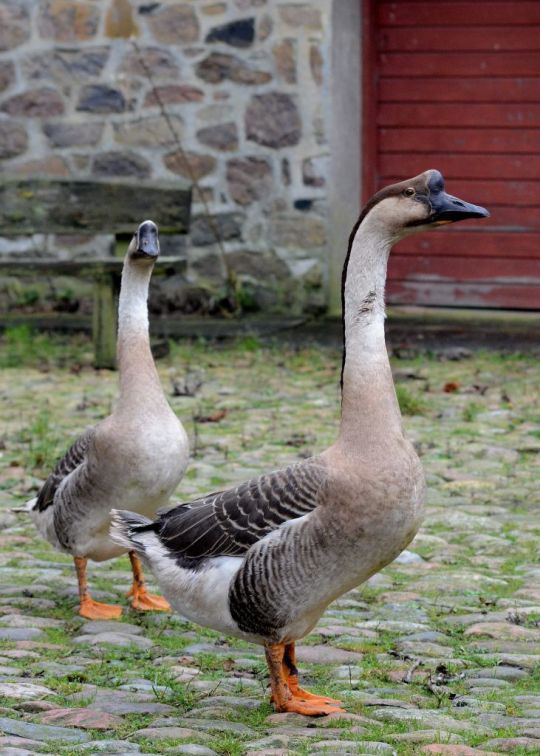
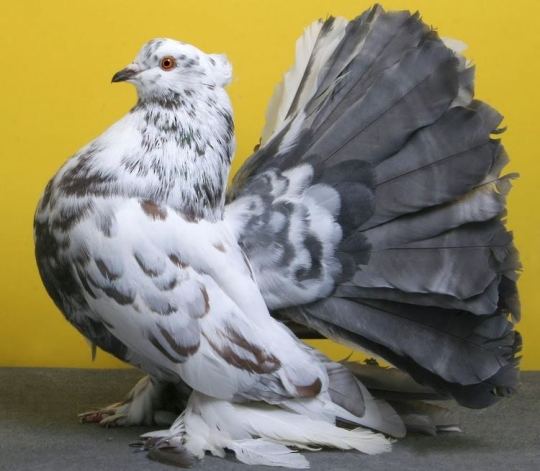
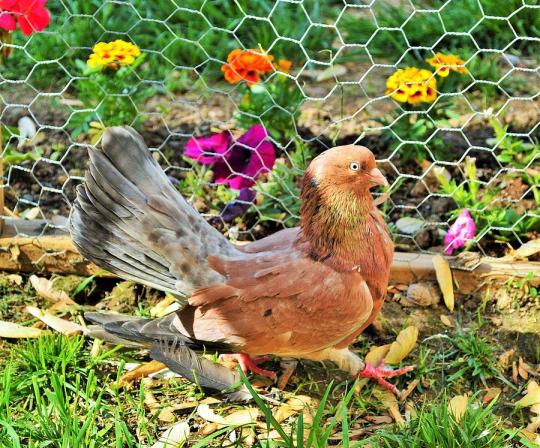
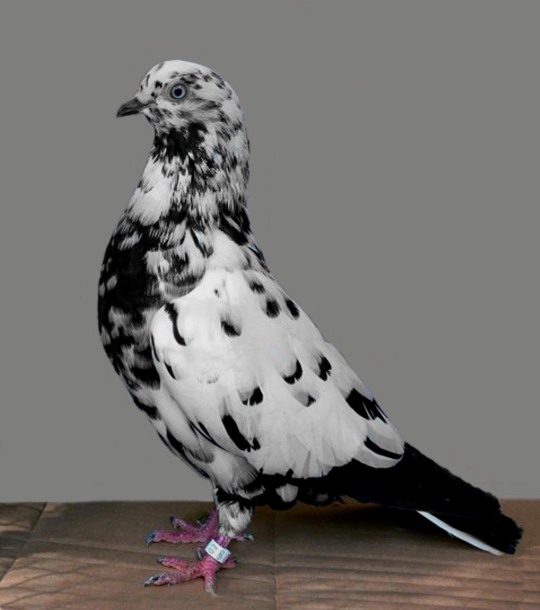
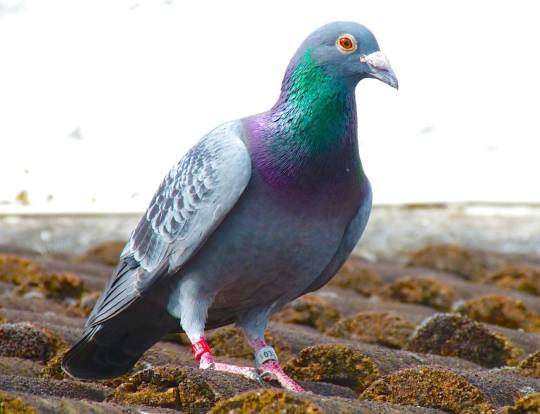
#nash westbrook hawthorne#nash hawthorne#grayson davenport hawthorne#grayson hawthorne#jameson winchester hawthorne#jameson hawthorne#xander blackwood hawthorne#xander hawthorne#hawthorne brothers#hawthorne shenanigans#hawthorne headcanons#hawthorne pet headcanons#animal headcanons#the inheritance games animal headcanons#the inheritance games#tig
15 notes
·
View notes
Text
How Kisumu Farmers Are Thriving Through Kienyeji Poultry Farming With Ruth Odinga’s Support
Kienyeji poultry farming has emerged as one of the most viable agricultural ventures for small-scale farmers across Africa. Its appeal lies in its low startup costs, minimal infrastructure requirements, and the high adaptability of indigenous chickens to local climates and conditions. Unlike exotic breeds, Kienyeji chickens are hardy, resistant to many diseases, and can thrive in free-range…
#African farming#bulk selling#chicken housing#chicken maturity#deworming#economic growth.#egg production#Food security#fowl pox#free-range chickens#Gumboro#H.E. Ruth Odinga#indigenous chicken farming#Kienyeji poultry farming#Kisumu County#Local Markets.#low-cost farming#Newcastle disease#organic chickens#poultry cooperatives#poultry diseases#poultry diseases prevention#poultry farming challenges#poultry farming for beginners#poultry farming in Africa#poultry farming solutions#poultry farming success#poultry farming tips#poultry feed#poultry food safety
0 notes
Text
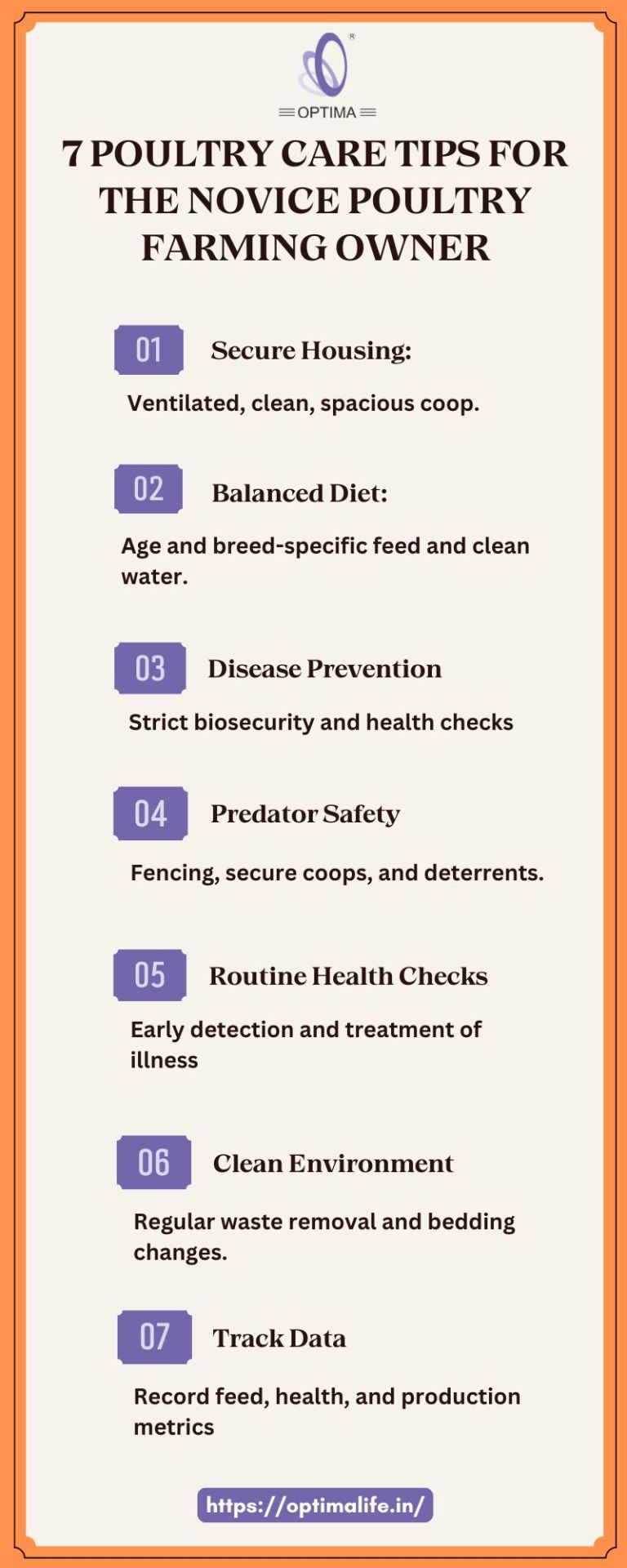
Starting a poultry farm? Follow these essential tips from Optima Life Sciences for a thriving flock. Ensure secure housing with adequate space and ventilation. Provide a balanced diet and clean water. Implement biosecurity measures to prevent disease. Protect your birds from predators with proper fencing and security. Conduct routine health checks for early illness detection. Maintain a clean environment with regular waste removal. Lastly, keep detailed records of feed, health, and production. Trust Optima Life Sciences to guide you to success in your poultry farming journey!
#feed additives for optimal animal nutrition#optimalhealth#Optima life Sciences#animal health supplements for poultry#poultry feed#Optima Life Sciences#liquid dosing systems for precise animal medication#high quality disinfectants for animal facilities#animal health supplements#animal health#poultry health support technology in pune#poultry health#feed milling solutions in pune#high performance solutions in pune#Cost-Effective Feed Additives for Performance Solutions#comprehensive farm disinfection services#Poultry health support technology in pune#Poultry health performance enhancing products in pune#cost effective performance solutions product in maharashtra#Premium Animal Health & Nutrition Product suppliers in pune#Animal health supplements for poultry#Feed additives for optimal animal nutrition#Farm biosecurity solutions#High-quality disinfectants for animal facilities#Comprehensive farm disinfection services#Liquid dosing systems for precise animal medication#Advanced feed supplements for farm animals#biosecurity solutions
1 note
·
View note
Text
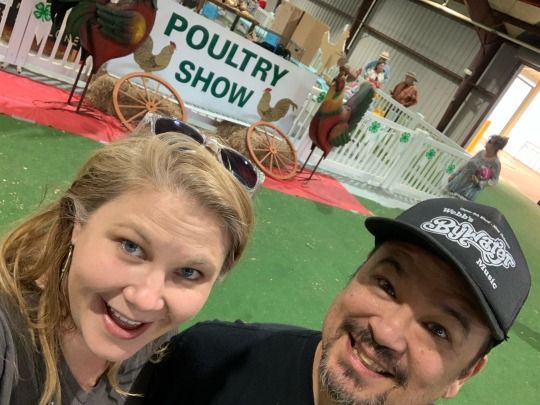
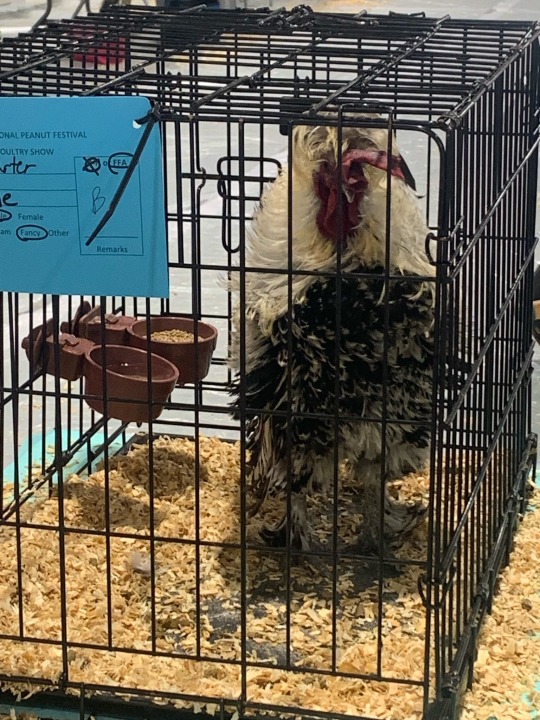
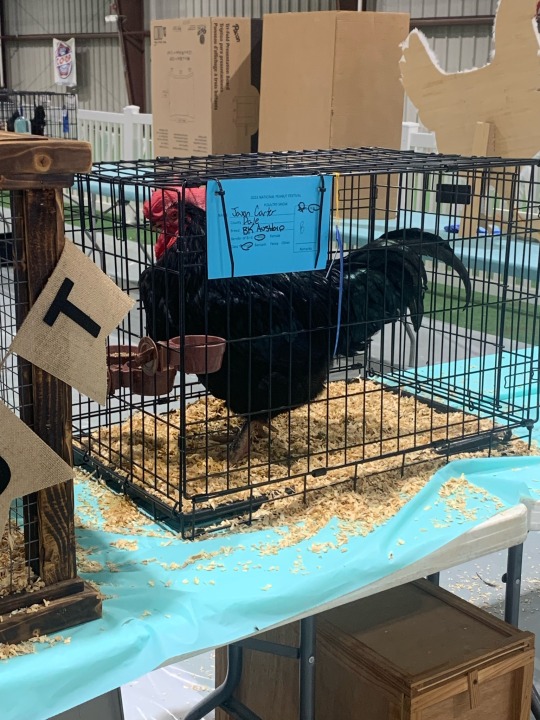
Recent events, including the National Peanut Festival Poultry Show have given me some joy. I love going to look at these fancy chickens. I cry every year because I love them so much. From afar. I’m ridiculous.
I had some luck with my holiday catering, making sides and desserts for people. I think I doubled customers and profits from last year, and I’ve gotten some rave reviews of the food. People seem to recognize that I’ve put a lot of love and work into these recipes, many of which have been passed down from my granny and great grandmother.
We had thanksgiving lunch with my family on Thursday and then Friendsgiving with some chosen family last night. We fried a turkey and had 3 kinds of potatoes, 4 if you count the rolls.
Gavin has been so driven and dedicated over the past couple of weeks. We’ve had a lot to do, and he totally came through. Last weekend, we loaded a truck of his music gear, his shop gear, and some Chewbacchus sculpture leftovers in NOLA and brought them back here. (We also attended a Chewbacchus event in town, saw our nerdy Krewe, and felt socially recharged.) We spent two days unloading the truck and then rolled right into 15 hours of Thanksgiving cooking. I just feel recovered today!
It was wonderful to see people I know and meet new folks who ordered food. Some of the highlights were: my 8th grade teacher who ordered a squash casserole and tipped me $5 in cash for “being such a good student;” seeing three branches of one family who ordered, all friends of my dad; meeting a college buddy of my dad’s who started a very successful food review FB group; taking pies to my dad’s junior prom date who is the current chair of the Democratic Party in our county; visiting with my nursery school buddy Amber and joining her for some bar trivia that night; and riding around with Gavin to make it all happen.
In our farming family, Thanksgiving is a harvest celebration. A time to gather and feast and rest. And we did.
Like a dummy, I took no photos of my catering. Next time!
4 notes
·
View notes
Text

Matt Wuerker
* * * *
LETTERS FROM AN AMERICAN
November 2, 2023
HEATHER COX RICHARDSON
NOV 3, 2023
In a speech yesterday in Northfield, Minnesota, President Joe Biden explained his economic vision to rural Americans. “Over the past 40 years or so, we’ve had a practice in America—an economic practice called trickle-down economics, and it hit rural America especially hard,” he said. “It hollowed out Main Street, telling farmers the only path to success was to get big or get out.” At the same time, he said, “[t]ax cuts for big corporations encouraged companies to grow bigger and bigger, move jobs and production overseas for cheaper labor, and undercut local small businesses. Meat-producing companies and the retail grocery chains consolidated, leaving farmers [and] ranchers with few choices about where to sell their products, reducing their bargaining power. Corporations that sell seed, fertilizer, and even farm equipment used their outsized market power to change farmers and charge them and ranchers unfair prices.”
Biden noted that the U.S. has lost more than 400,000 family farms in the past 40 years, an area of more than 140 million acres of farmland, equivalent to an area the size of Minnesota, North Dakota, and South Dakota combined. Family farms have failed, and as they did so, small businesses, hospitals, schools, and communities also suffered.
Young people feel they have no choice but to leave home “in search of good-paying jobs and a chance at the American Dream.”
Biden explained that his plan to invest in America would create new and better markets and new income streams to help rural areas thrive. He noted that $20 billion of the Inflation Reduction Act will go to helping farmers and ranchers adjust to climate change by changing cover crops and managing nutrients and grazing, while urging farmers to diversify from single crops and sell in local markets.
Biden emphasized that the administration is promoting competition in agricultural markets, noting that currently just four big corporations control more than half the market in beef, pork, and poultry. If just one of their processing plants goes offline, it can cause massive supply chain disruptions (as the closing of a baby formula plant did in 2022). “[T]here’s something wrong,” he said, “when just 7% of the American farms get nearly 90% of the farm income.”
In addition to the existing national investments in power grids and broadband that will help rural communities, Biden announced $1 billion to fix aging rural infrastructure systems like electricity, water, and waste water systems that haven’t been updated in decades; $2 billion to help farmers fight climate change; $145 million for clean energy technologies like solar panels that will help lower electric bills; and $274 million for rural high-speed internet expansion.
The administration’s vision for rural America appears to be part of a larger vision for restoring competition to the U.S. economy and thus is closely tied to the administration’s push to break up monopolies. In July 2021, Biden promised to interpret antitrust laws in the way they had been understood traditionally, not as the U.S. government began to interpret them in the 1980s. Then, following the argument advanced by the solicitor general of the United States at the time, Robert Bork, the government concluded that economic consolidation was fine so long as it promoted economic efficiencies that, at least in the short term, cut costs for consumers.
Biden vowed to return to the traditional understanding of antitrust principles championed by presidents all the way back to Theodore Roosevelt at the turn of the last century, arguing that protecting economic competition protects workers, promotes innovation, and keeps consumer prices down. To that, the coronavirus pandemic added an awareness of the need to protect supply chains.
“Bidenomics is just another way of saying ‘the American Dream,’” Biden said. “Forty years ago, trickle-down economics limited the dream to those at the top. But I believe every American willing to work hard should be able to get a job, no matter where they live—in the heartland, in small towns—to raise their kids on a good paycheck and keep their roots where they grew up.”
In contrast to Biden’s outreach to farmers, House speaker Mike Johnson (R-LA) is facing a dilemma over the nation’s next farm bill, which must be passed by the end of the year. According to Clark Merrefield of The Journalist’s Resource, Congress usually debates and renews the farm bill every five years, and the last one passed in 2018.
Farm bills include price support for farm products, especially corn, soybeans, wheat, cotton, rice, peanuts, dairy, and sugar. It also includes crop insurance, conservation programs, and a wide variety of other agricultural programs, making the farm bill hugely popular in rural areas that focus on farming.
Also included in the measure are nutritional programs for low-income Americans, such as the Supplemental Nutrition Assistance Program (SNAP), formerly known as food stamps. SNAP serves 41 million low-income Americans, but as a member of the far-right Republican Study Committee, Johnson called for cutting SNAP benefits. Now his far-right colleagues are echoing his position, saying that the need to renew the farm bill is a great opportunity to make significant cuts to SNAP, especially since the farm bill is expected to bear a price tag of more than $1 trillion for the first time in our history.
“I can’t imagine the Mike Johnson that we know would pass up the opportunity to secure as many conservative wins as possible in this farm bill,” a Republican aide told Meredith Lee Hill of Politico, “[a]nd that means serious SNAP reforms.”
But even some Republicans—primarily those who hail from agricultural states—object to loading the farm bill up with the poison pill of SNAP cuts, knowing such a tactic would repel Democrats, whose votes will be necessary to pass the measure as far-right Republicans balk.
It will take a deft hand to get the measure through Congress, and its failure at Johnson’s hands will infuriate hard-hit rural areas. It is one more thing to add to the new speaker’s to-do list, as the deadline for funding the government is looming. The continuing resolution funding the government at 2023 levels, the measure that cost Representative Kevin McCarthy (R-CA) his speakership, expires in just over two weeks, on November 17.
Johnson’s willingness to load bills with poison pills that his conference likes showed today in the House’s passage of Republicans’ aid bill for Israel—Ukraine aid had been cut away—along with dramatic cuts to funding the Internal Revenue Service (IRS), a provision that the nonpartisan Congressional Budget Office warned would add to the deficit rather than reducing it. Knowing that the measure will not pass the Senate, a number of Democrats voted for it, likely to avoid attacks from conservative opponents.
Senate majority leader Chuck Schumer (D-NY) says the Senate won’t even take up the House bill. Instead, the Senate continues to work on its own strongly bipartisan bill that ties together aid to Israel and Ukraine.
As Kate Riga of Talking Points Memo put it, if the Senate continues to work in this bipartisan way, we will continue to see the same pattern we’ve seen throughout this Congress: “Senate Democrats, Senate Republicans and House Democrats all supporting more or less the same thing, with a chunk of House Republicans out on a branch alone.”
After an angry fight last night over Senator Tommy Tuberville’s (R-AL) holds on military promotions, in which Republican senators joined Democrats in confronting him, the Senate today confirmed General David Allvin to be Air Force chief of staff and Admiral Lisa Franchetti as chief of naval operations, by votes of 95 to 1. Franchetti is the first woman to serve on the Joint Chiefs of Staff.
Wednesday’s fight appears to have been prompted by the hospitalization of acting Marines Commandant General Eric Smith after an apparent heart attack. Smith was holding down two high-level positions at once owing to Tuberville’s holds, and he had warned his schedule was “not sustainable.” Although the Pentagon says Tuberville is endangering national security, Tuberville insists that his hold on almost 400 military promotions is not hurting the military.
The new additions mean there are no vacancies on the Joint Chiefs of Staff for the first time since July.
LETTERS FROM AN AMERICAN
HEATHER COX RICHARDSON
#Matt Wuerker#Letters From An American#Heather Cox Richardson#US Economy#Bipartisan#House Republican#National Security#income inequality
5 notes
·
View notes
Text
Poultry Cartons – The Unsung Hero of Egg Packaging
In the poultry industry, success doesn't just depend on the number of eggs produced—it also depends on how safely and attractively those eggs are delivered to the customer. That’s where poultry cartons come into play. Whether you run a small backyard poultry farm or a large-scale commercial operation, choosing the right egg cartons is vital to ensure product safety, quality, and customer satisfaction.
Let’s take a closer look at what poultry cartons are, their types, benefits, and why buying egg cartons in bulk can be a game-changer for your business.
What Are Poultry Cartons?
Poultry cartons—commonly known as egg cartons—are specialized packaging used to store, protect, and transport eggs. They’re designed to cushion eggs against impact, prevent cracking, and keep them organized. But their importance doesn’t stop at functionality; they also serve as a branding tool and help build trust with customers.
A well-designed egg carton reflects professionalism and cleanliness, both of which are essential in the food industry.
Why Egg Cartons Matter
Protection: Eggs are naturally fragile. A single bump during transport can damage them. Cartons act as shock absorbers, reducing breakage and loss.
Freshness: Proper packaging helps retain egg freshness by reducing exposure to air and contaminants.
Presentation: For local sellers and commercial brands alike, presentation matters. Clean, well-labeled cartons elevate your product and encourage repeat purchases.
Hygiene & Safety: Especially in regulated markets, food-grade packaging is a must. Egg cartons ensure safe handling, storage, and compliance with health standards.
0 notes